第4章 "OUR OLD KING OR NONE"(1)
The movement which led eventually to the emancipation of the colonies differed from the local uprisings which occurred in various parts of South America during the eighteenth century.
Either the arbitrary conduct of individual governors or excessive taxation had caused the earlier revolts. To the final revolution foreign nations and foreign ideas gave the necessary impulse. Afew members of the intellectual class had read in secret the writings of French and English philosophers. Othershad traveled abroad and came home to whisper to their countrymen what they had seen and heard in lands more progressive than Spain and Portugal.
The commercial relations, both licit and illicit, which Great Britain had maintained with several of the colonies had served to diffuse among them some notions of what went on in the busy world outside.
By gaining its independence, the United States had set a practical example of what might be done elsewhere in America.
Translated into French, the Declaration of Independence was read and commented upon by enthusiasts who dreamed of the possibility of applying its principles in their own lands. More powerful still were the ideas liberated by the French Revolution and Napoleon. Borne across the ocean, the doctrines of "Liberty, Fraternity, Equality "stirred the ardent-minded to thoughts of action, though the Spanish and Portuguese Americans who schemed and plotted were the merest handful. The seed they planted was slow to germinate among peoples who had been taught to regard things foreign as outlandish and heretical. Many years therefore elapsed before the ideas of the few became the convictions of the masses, for the conservatism and loyalty of the common people were unbelieveably steadfast.
Not Spanish and Portuguese America, but Santo Domingo, an island which had been under French rule since 1795 and which was tenanted chiefly by ignorant and brutalized negro slaves, was the scene of the first effectual assertion of independence in the lands originally colonized by Spain. Rising in revolt against their masters, the negroes had won complete control under their remarkable commander, Toussaint L'Ouverture, when Napoleon Bonaparte, then First Consul, decided to restore the old regime.
But the huge expedition which was sent to reduce the island ended in absolute failure. After a ruthless racial warfare, characterized by ferocity on both sides, the French retired. In 1804 the negro leaders proclaimed the independence of the island as the "Republic of Haiti," under a President who, appreciative of the example just set by Napoleon, informed his followers that he too had assumed the august title of "Emperor"! His immediate successor in African royalty was the notorious Henri Christophe, who gathered about him a nobility garish in color and taste--including their sable lordships, the "Duke of Marmalade" and the "Count of Lemonade"; and who built the palace of "Sans Souci" and the countryseats of "Queen's Delight" and "King's Beautiful View," about which cluster tales of barbaric pleasure that rival the grim legends clinging to the parapets and enshrouding the dungeons of his mountain fortress of "La Ferriere." None of these black or mulatto potentates, however, could expel French authority from the eastern part of Santo Domingo. That task was taken in hand by the inhabitants themselves, and in 1809 they succeeded in restoring the control of Spain. Meanwhile events which had been occurring in South America prepared the way for the movement that was ultimately to banish the flags of both Spain and Portugal from the continents of the New World. As the one country had fallen more or less tinder the influence of France, so the other had become practically dependent upon Great Britain. Interested in the expansion of its commerce and viewing the outlying possessions of peoples who submitted to French guidance as legitimate objects for seizure, Great Britain in 1797wrested Trinidad from the feeble grip of Spain and thus acquired a strategic position very near South America itself. Haiti, Trinidad, and Jamaica, in fact, all became Centers of revolutionary agitation and havens of refuge for. Spanish American radicals in the troublous years to follow.
Foremost among the early conspirators was the Venezuelan, Francisco de Miranda, known to his fellow Americans of Spanish stock as the "Precursor." Napoleon once remarked of him: "He is a Don Quixote, with this difference--he is not crazy . . . . The man has sacred fire in his soul." An officer in the armies of Spain and of revolutionary France and later a resident of London, Miranda devoted thirty years of his adventurous life to the cause of independence for his countrymen. With officials of the British Government he labored long and zealously, eliciting from them vague promises of armed support and some financial aid. It was in London, also, that he organized a group of sympathizers into the secret society called the "Grand Lodge of America." With it, or with its branches in France and Spain, many of the leaders of the subsequent revolution came to be identified.
In 1806, availing himself of the negligence of the United States and having the connivance of the British authorities in Trinidad, Miranda headed two expeditions to the coast of Venezuela. He had hoped that his appearance would be the signal for a general uprising; instead, he was treated with indifference. His countrymen seemed to regard him as a tool of Great Britain, and no one felt disposed to accept the blessings of liberty under that guise. Humiliated, but not despairing, Miranda returned to London to await a happier day.